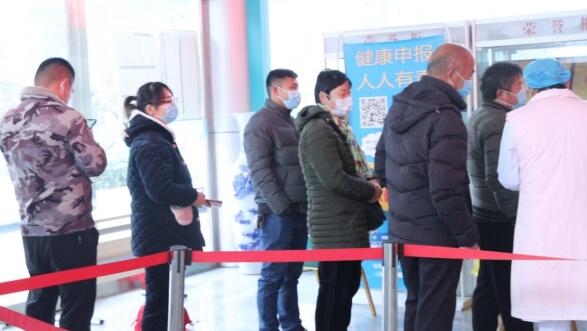China is a big country with liver disease, and the number of patients with chronic liver disease alone exceeds 400 million. Liver disease is a relatively general name, subdivided common hepatitis B, hepatitis C, fatty liver, alcoholic liver, drug-induced liver disease, schistosomiasis liver disease, etc., of which hepatitis B infection accounts for 25%, fatty liver and alcoholic liver patients are increasing year by year.

Liver and gallbladder, this idiom must be no stranger to everyone, it comes from the "Hou Magi Record" in the "Heart to See the Bile Shou Qianchun". It is often used as a metaphor for the deep friendship between people, intimate and supportive of each other. Whenever this word is mentioned, it is inevitable to express a heartfelt admiration for the wisdom of the ancients.
According to the survey, many patients with liver disease are often accompanied by gallstones, what is the reason for this? Chang Huaili, a liver disease expert at Zhengzhou Friendship Liver and Gallbladder Hospital, said: From a medical point of view, liver and gallbladder are indeed a pair of "dependent on each other" and have a close relationship with organs! According to the traditional theory of Chinese medicine, the liver and gallbladder are each other's surface.
The main liver is drained, and the bile is descended. Director Chang said: "The normal excretion of bile depends on the drainage function of the liver, and the abnormal function of the liver is bound to affect the secretion and excretion of bile. Conversely, poor bile excretion can also affect liver drainage. From a functional point of view, the gallbladder is also a good helper of the liver, the bile secreted by the liver is stored in the gallbladder, once we start to eat, the gallbladder begins to contract, so the bile flows into the intestine, helping the digestion of fat, but the small gallbladder capacity is limited, when the cholesterol content in the food is too high, beyond the ability of the bile to bear, it will be diluted to form crystals, and the accumulation will become 'stone'. ”
Some liver diseases, such as viral hepatitis, fatty liver and alcoholic liver, will lead to abnormal liver function, at which time the liver's ability to synthesize and degrade bilirubin will decline, resulting in cholestasis and slower bile excretion. At this time, if the food we eat is just too greasy, the cholesterol content is very high, and the gallbladder is not ready to take care of itself, the gallbladder simply does not have the ability to secrete enough bile to help break down fat and cholesterol, and then the above situation will occur, and eventually become "gallstones".
In the clinic, the liver and gallbladder are used as a pair of organs that "honor and disgrace and share". Liver disease often affects the gallbladder, biliary disease also often affects the liver, people with liver disease are more likely to suffer from gallstones, on the other hand, gallstones, biliary roundworms or tumors, but also make bacteria "upstream", causing liver and even systemic infection.
Therefore, patients with liver disease should learn how to prevent gallbladder stones, and Director Chang especially reminded that the method of preventing gallbladder stones in daily life has many similarities with the method of maintaining the liver, and should start from the following 4 points:
1. Stay optimistic and cheerful, and feel comfortable. Optimism is the primary factor in preventing cholelithiasis, and any bad mood can cause cholesterol metabolism to be out of balance, leading to stone formation or recurrence.
2. Reasonable diet is regular. Regular eating is the best way to prevent stones, because the gallbladder is full of bile when not eating, the mucous membrane of the gallbladder absorbs water to thicken the bile, and the viscosity of the bile increases, and finally the bile mud is formed.
3. Quit drinking and eat less fatty food. Try to avoid drinking alcohol and eating too many high-protein, high-fat, high-calorie foods. A diet rich in fiber should be consumed appropriately to improve the excretion of cholesterol and prevent the formation of stones. Reduce the intake of animal fats, such as fatty meat and animal fats, and increase the proportion of vegetable oils such as corn oil, sunflower oil, peanut oil, and soybean oil in an appropriate amount. Guarantee the supply of fresh vegetables and fruits. Leafy greens that provide the necessary vitamins and an appropriate amount of fiber.
4. Drink plenty of water. 5-8 cups a day, drink without thirst, so that bilirubin is excreted from the urine.
5. Pay attention to regular inspections. For people who have suffered from liver disease, while actively treating liver disease, we should pay more attention to regular examination of abdominal ultrasound, blood lipids, and early detection of gallstones to prevent problems before they occur.
6. Exercise appropriately. Usually, you should combine your own health, choose the appropriate exercise method and persevere.